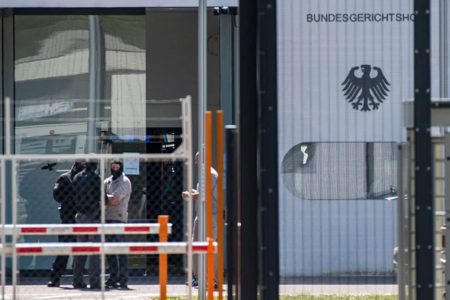
Why the Islamic State cell in Germany deserves more attention?
The four Tajik citizens were arrested at various addresses in northwest Germany. But according to German prosecutors, the men weren’t simply inspired ISIS fighters of the kind that typify most of the group’s Western attack plots.
Prosecutors said the men had formed an operational ISIS cell that was in continuing contact with ISIS leaders in Syria and elsewhere. Directed to attack targets on German soil, the cell was apparently focused on U.S. Air Force bases in Germany, likely Ramstein Air Force Base, which is not far from where the terrorists were arrested.
The cell leader was arrested in March 2019. That’s notable because it indicates that either German authorities were not aware of the rest of the cell until recently, or that they had been watching the cell in order to see if it made contact with other cells. I lean strongly toward the second possibility.
One of the challenges in confronting ISIS-directed cells in Europe is that they keep separate from each other except for rare in-person meetings, use countersurveillance tactics to evade anyone watching them, and communicate carefully via cellphone and the internet. Note, also, that the Paris November 2015 and Brussels March 2016 attackers came from the same cell. Authorities must thus take every opportunity to monitor identified cell members before arresting them, so as to make sure the entire network is swept up. Considering their boutique interception capabilities, it is likely that the United States and/or British intelligence services were able to first identify the cell via its communications back to Syria.
Another point of note here is that the cell had already accessed firearms and was acquiring explosive precursor materials. That stockpiling is striking in that firearms in Germany are strictly regulated and hard to acquire except through connections with criminal enterprises. That the cell had gotten its hands on firearms suggests it was well-organized and ready to strike. The group’s pursuit of explosive materials also evinces another of the challenges facing counterterrorism services.
Namely, that the cell’s various members were probably ordering materials, many of which would be basic household goods, individually and separately, rather than in bulk. That action makes it less likely that purchases will trigger security service attention (although big data analysis helps security services greatly, here).
Ultimately, this is a reminder that the ISIS threat is degraded but not defeated.
Source: Washington Examiner





